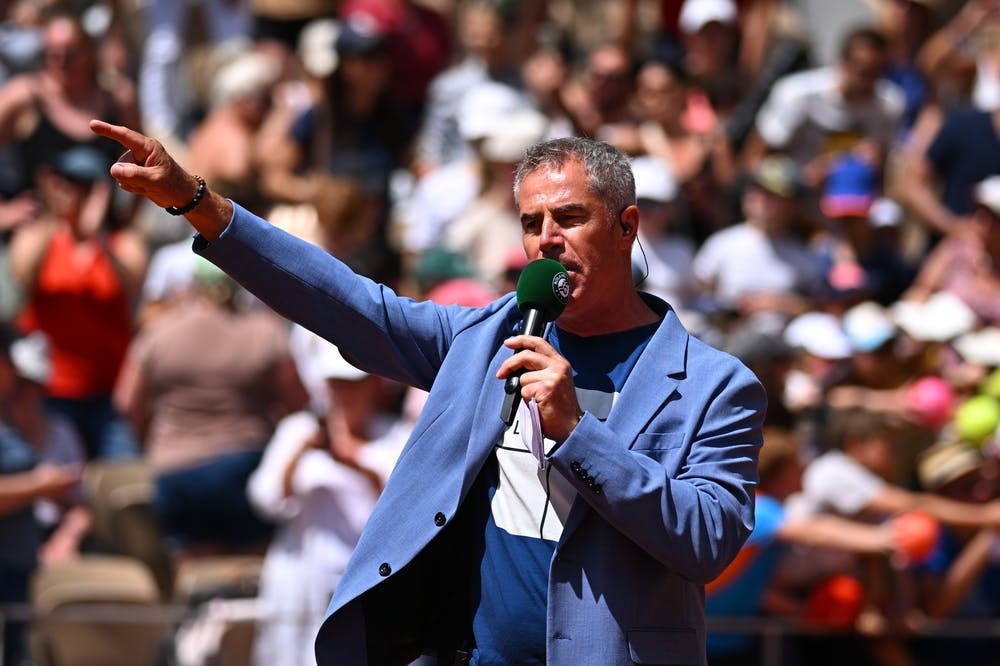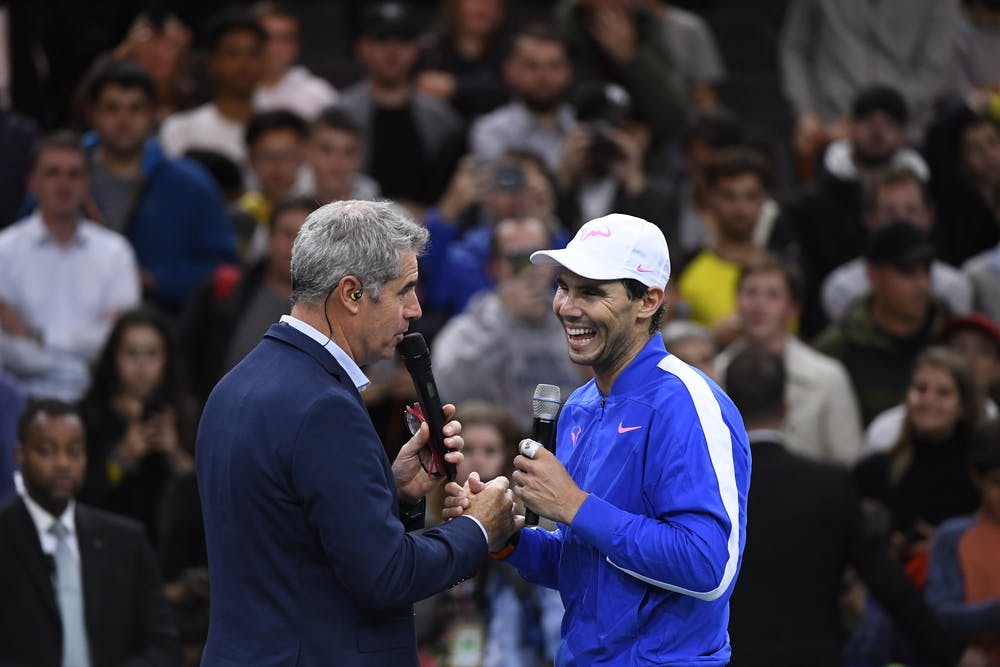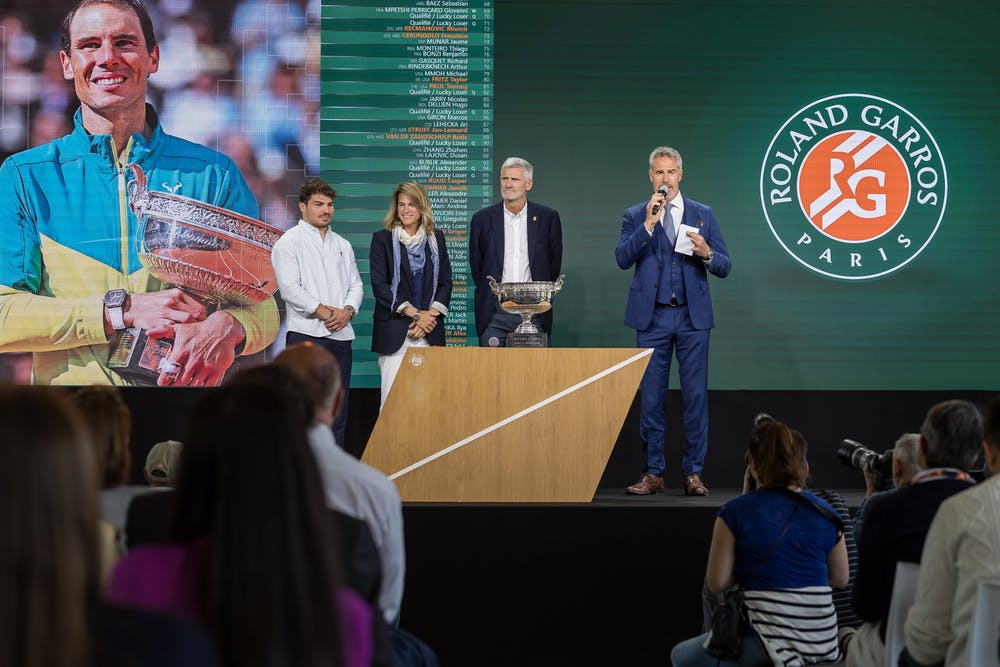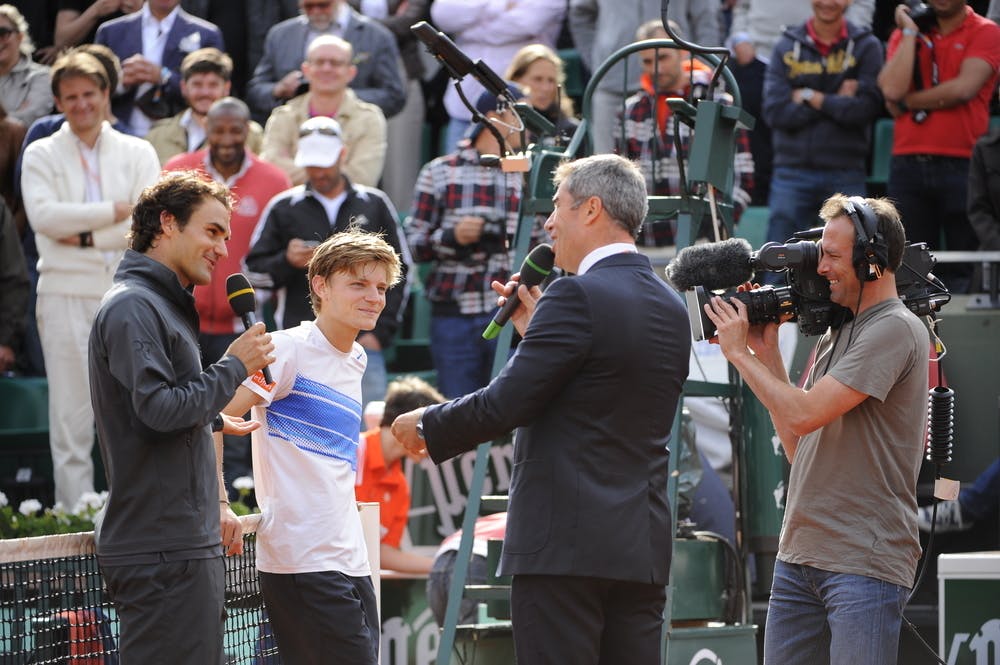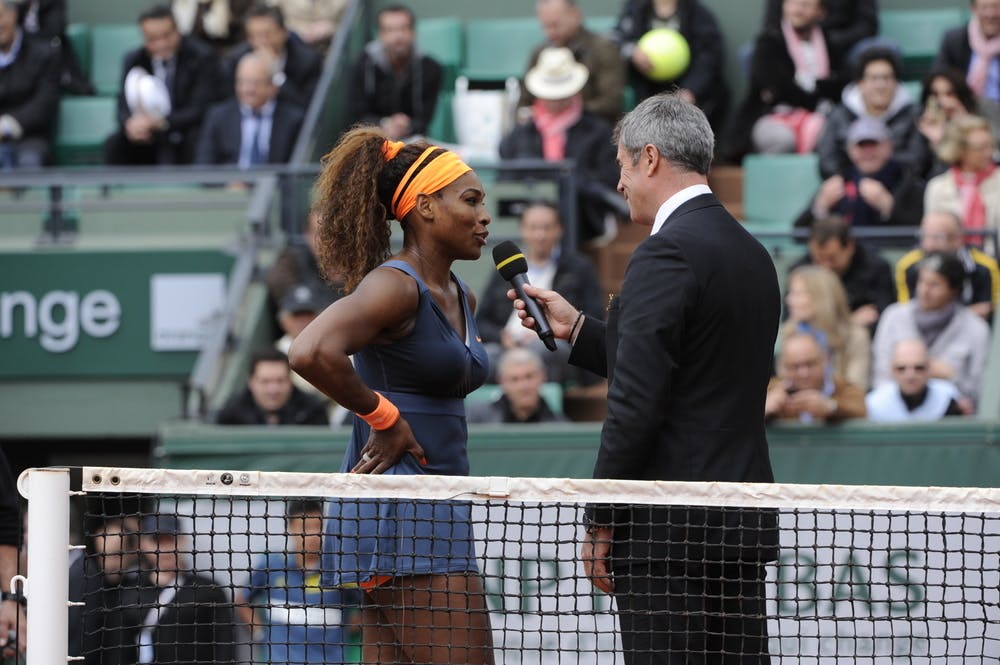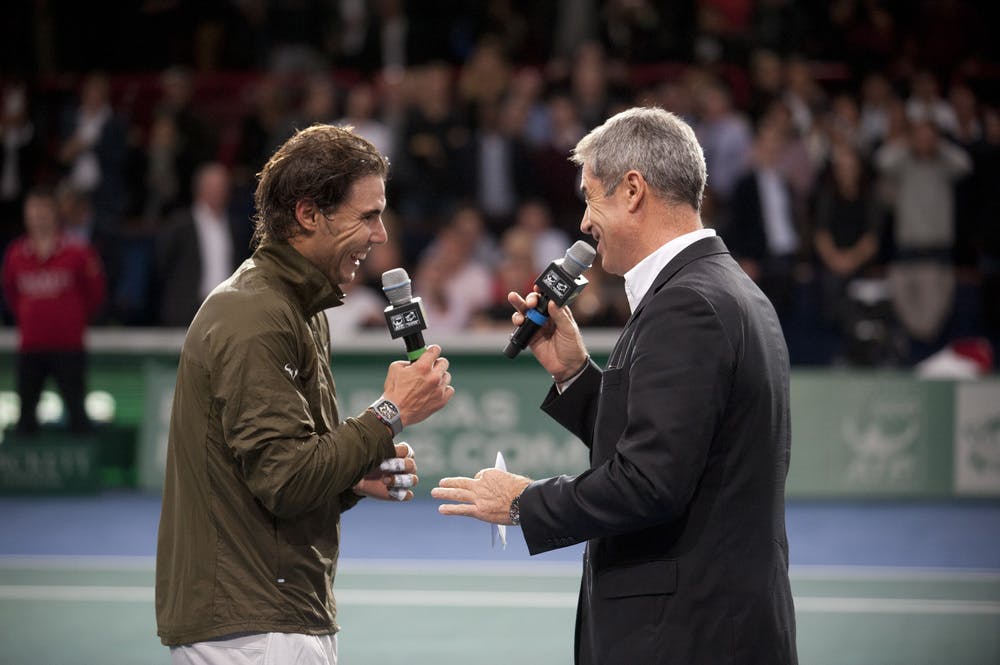That gig was just the start and Maury soon found himself commentating and hosting at a multitude of elite events. It would soon be time to decide whether he could make a living from his media roles.
"I had to choose, around the same time the [current] president of the French Tennis Federation [FFT], Gilles Moretton, was sometimes watching track and field, and he was running the ATP event Grand Prix de Lyon. He said can we do something in tennis?"
A new role
The timing was perfect as the ATP had just allowed tennis tournament organisers more freedom to create their own on-court presentations.
"We were exchanging faxes, it was another age, the stone one, with no internet, no mobiles. After a few months, we had sorted a plan for on-court presentations, the exact set-up, which is now used everywhere in the world," Maury continued.
"The first time there was a special presentation for players, with a microphone and music, was Indian Wells in the States in 1994, then the second time was with us in Lyon.
"I asked Gilles, 'What can we do that doesn't disturb the players and their game?' He said the best is working out something before the players enter until they start the match. That includes the warm-up. Then, after match point, then you can sort an on-court interview. That wasn't allowed before 1994 either, there was only the press conference."
 ROLAND-GARROS
18 May - 7 June 2026
ROLAND-GARROS
18 May - 7 June 2026


